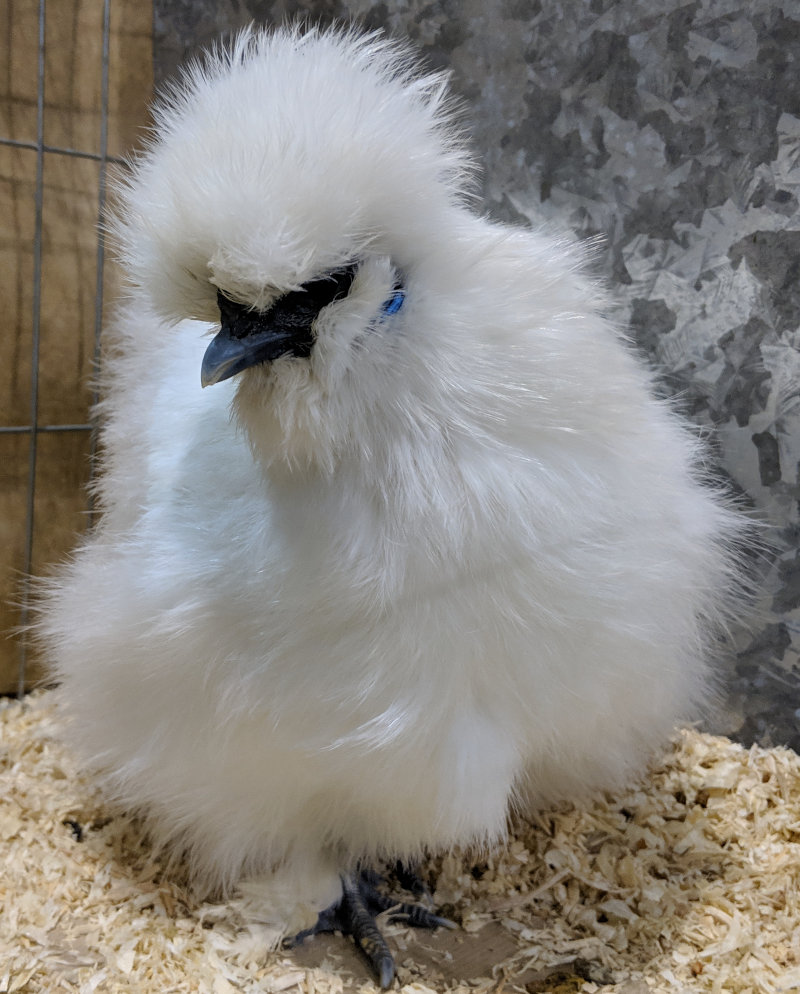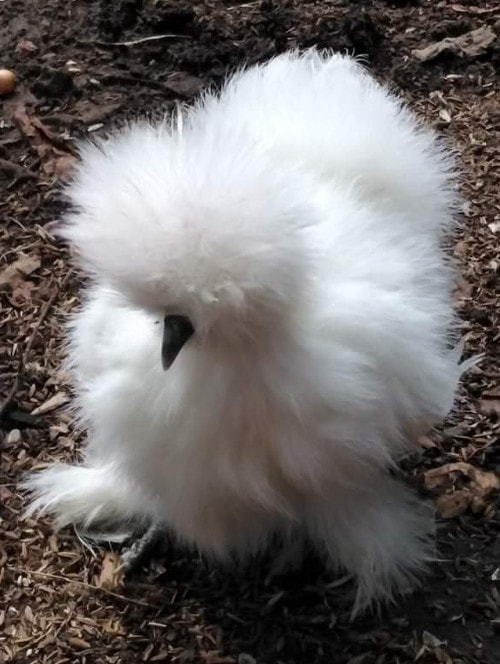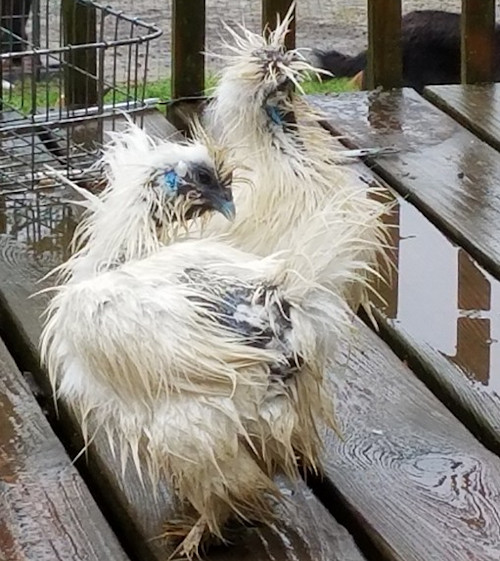Are Silkies right for me? The pros and cons.

Silkies vs other breeds of chickens:
So how do Silkies compare to other breeds and types of chickens? Quite well in some respects and not so in others.
This page is all about the best and the worst of the Silkie as a breed and whether or not they are right for you as the keeper.
Below: Silkies are glorious little fluff balls with an excellent nature but they are not for everyone.

What are the Pros and Cons of keeping Silkies?
All breeds of chickens have their upsides as well as downsides. Silkies have a lot of both, there is many reasons to keep them and just as many reasons not to.
Pros:
- Silkies make great pets. They are fluffy, cute, tame and lovable and have a natural affinity for human company from day one.
- The eggs are delicious. Small and infrequent but really nice with good strong shells and bright yolks.
- Make excellent sitters and broody hens. Silkies are determined sitters and will even hatch Guinea fowl and duck eggs that need 28 to 35 days incubation.
- Hens are good mothers and the roosters are generally good dads as well. I can't think of the last time I had a broody Silkie not finish sitting on her eggs, in fact I normally find them trying to hatch golf balls or stones in far corners of my land.
- Silkies are quiet, the cockerels have a soft and quiet crow and the hens seem to make much less noise than my other breeds.
- Silkies can't hop very high or fly at all so are easy to keep contained in a backyard.
- Silkies are extremely passive and not a flappy type so great for kids or people who don't really like chickens.
- Petite, lightweight and generally thrifty bird that likes to free range and is light on your food bill.
Cons:
- Too passive to avoid dangers. Because of the large crests they can't see as wide an area. This makes them very relaxed an they never spot danger from above until it's too late.
- The feathers do not protect the bird from the elements well and they get wet through easily making the birds cold.
- The feathered feet get messy in a flash and they do best in covered runs away from muddy ground.
- Silkies tend not to perch high to sleep and if they pile up to sleep at night, that can be a problem. Silkies can be persuaded to perch.
- They are vulnerable to predators and are often taken and easily killed by predators Silkies are vulnerable due to decreased vision and size.
- Eggs are small and the laying is sporadic so you may end up with many egg-less days in your house.
- Tough to determine gender. Silkies are almost impossible to sex when young and even when older it can be difficult.
- A Silkie is the only chicken I've ever had that has starved itself to death on a nest. They go broody frequently and this can vary from annoying to soul destroying.
- They are unfortunately not the brightest of chickens. I would put them second only to Guinea fowl on the daft scale.
- Silkies do get picked on by other breeds, although this is not necessarily the fault of your Silkies, it can be a problem. You need to trim feathers covering their eyes and affecting their eyesight.
- They are more fragile as a breed. Several genetic issues like vaulted skulls come with the feathers and inbreeding. They are more prone to diseases and vitamin deficiencies than other chicken sand there is some suggestion that the Silkie breed is the most susceptible to Mareks.
- The fluffy feathers couple with Silkies being generally daft makes them susceptible to heat related conditions.
- They have no sense of self preservation, mine stand around in the wind, rain and snow and the one thing a Silkie should not get is cold and wet because they will get sick, especially in the winter.
- The soft and fluffy feathers mean mites and lice are a problem.
- All Silkies have extra toes, at least one and sometimes two, and these can be problematic.
- Silkie chickens are quiet rare and expensive to buy.
Are Silkies the right chickens for you?
This is one thing only you can answer. Silkies can be frustrating as a breed.
Below: They have little self preservation and wet easily.

I used to keep a lot more of them than i have at the moment, for me the deal breaker was having so many broodies to break, I once had 11 hens in suspended dog crates and it took nearly 3 weeks to get them all out of the family way.
